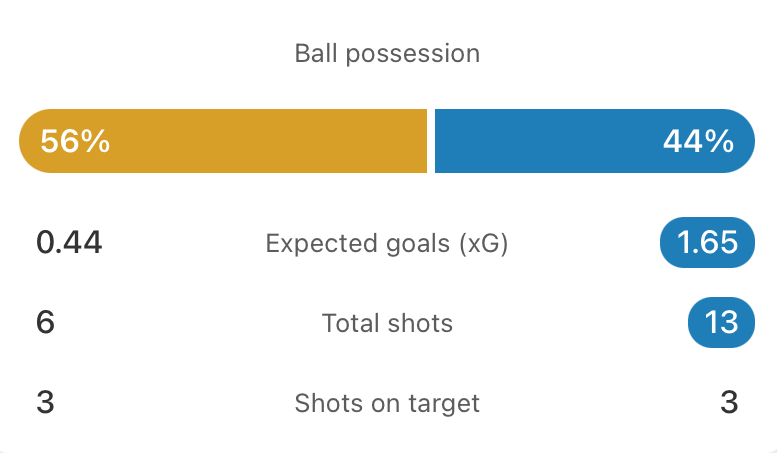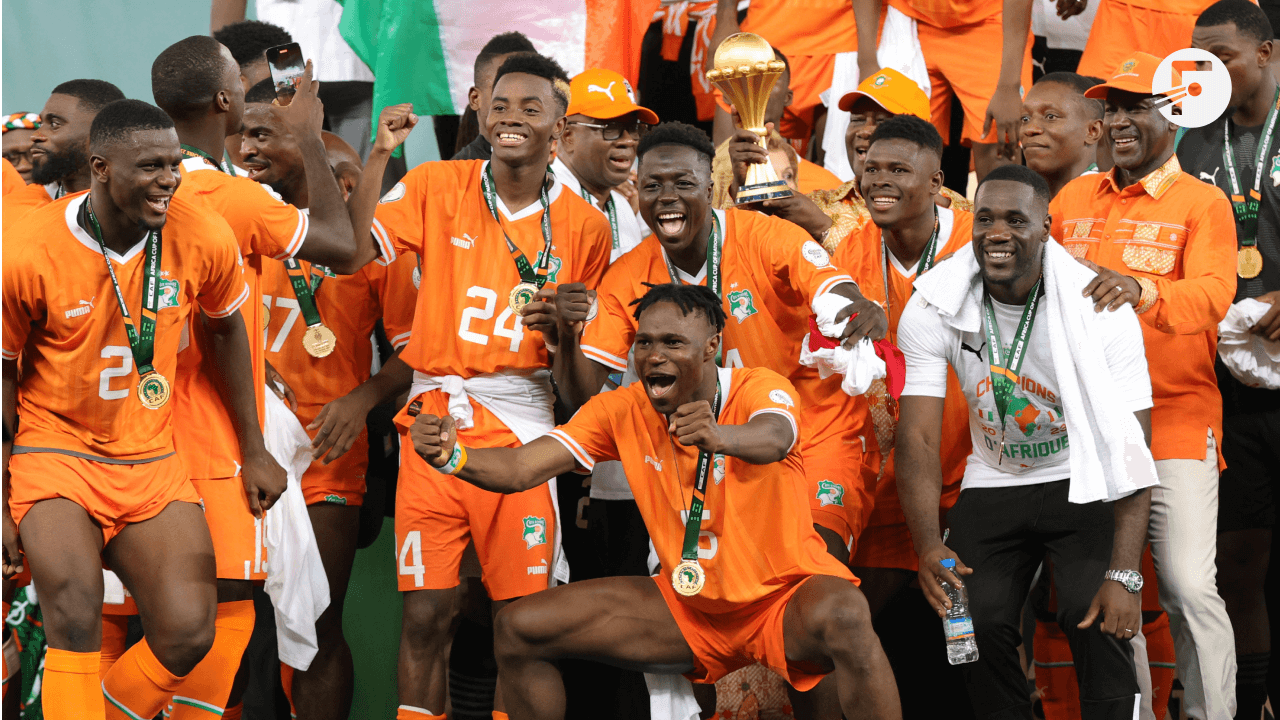The most dramatic edition of the Africa Cup of Nations came to a fitting end. The hosts Ivory Coast, who once looked down and out at the end of their group games after suffering a historic home defeat, went on to complete the mother of all turnarounds by bouncing back after conceding first in the final. They have become the first hosts to lift the trophy since 2006, capping off one of the most unforgettable tournament campaigns with some incredible scenes.
By Neel Shelat
We also had a third-place play-off before the final, though many might have forgotten about it following events on Sunday.
🇿🇦 South Africa 0-0 DR Congo 🇨🇩 (6-5 on pens)
Truthfully, it was a rather forgettable match too. South Africa and DR Congo played out a goalless 90 minutes with little to get fans off their seats. Bafana Bafana controlled proceedings better but struggled to create anything, so DR Congo looked likelier to grab a winner late on after their substitutes provided some attacking spark, but they failed to hit the back of the net.

Sensibly, we did not have to endure another half an hour of extra time as the match went straight to penalties. South Africa’s opening miss ceded the advantage, but Ronwen Williams stole the show again by saving a potential winner for the Leopards before stopping another to win the game for his side.
🇳🇬 Nigeria 1-2 Ivory Coast 🇨🇮
Nigeria and the Ivory Coast renewed their rivalry in the final, having previously met in a pivotal group stage fixture just a couple of weeks ago. That was the match in which Nigeria switched to the back-five system, which went on to make them the team with the best defensive record in the knockouts.
The Elephants, for their part, went on an unbelievable ride thereafter. After suffering a historically bad home defeat in their final group, their fate hung in the balance as they needed a series of favourable results to qualify as one of the best third-placed teams. They just about got a knockout berth, but coach Jean-Louis Gasset was sent home anyway and Emerse Faé took over.
And then began the Ivorian resurrection. They first overcame defending champions Senegal on penalties in the Round of 16, then turned around a deficit with ten men against Mali thanks to two stoppage-time goals, and finally beat DR Congo by a solitary goal to reach the final. After all those twists and turns, a straightforward final never seemed likely.
Buoyed by a packed Olympic Stadium, the home team were firmly in control throughout the opening exchanges. They saw much more of the ball and created a couple of half-decent chances too, but it was Nigeria who drew first blood as William Troost-Ekong thumped a header home after a corner to score with his team’s only shot on target of the first half.

As Nigeria started sinking even deeper thereafter, the game looked to be following a similar trajectory to the group fixture, in which Troost-Ekong gave the Super Eagles the lead and then led the defensive effort as their low block frustrated the Ivory Coast. This time, though, the Elephants fought back.
Franck Kessié headed a free-kick in just after the hour mark, further bolstering the hosts’ momentum as the crowd grew even louder. The real difference-maker, though, was Simon Adingra. His return from injury added a new dimension to the Ivorian attack in the knockouts, as his dribbling threat enabled him to create chances out of nothing from either flank. He ran rings around Ola Aina throughout the match, but never more decisively than in the 81st minute when he sent in a cross for Sébastien Haller, who somehow poked the ball home to complete yet another turnaround for the Ivory Coast.
And while we’re on the subject of comebacks, what better a comeback story than Haller’s? This time last year, he was slowly returning to top-flight action after battling testicular cancer. His participation in this tournament was in jeopardy too as he missed out on the group stage action due to an ankle injury, almost getting eliminated without taking to the field. The Borussia Dortmund striker’s presence as a target man then proved decisive when it mattered most, as he scored the winner in both the semi-final and final.
The Ivory Coast saw out the win with relative comfort in the end, crowning one of the most incredible tournament journeys with a trophy lift in front of 60,000 joyous fans.
Tournament Review
Surely, that was the greatest AFCON we have ever seen?
The drama and entertainment never slowed down after an explosive start. Every single group game featured goals right up until the final day, and the knockouts had so many late twists and turns. Even though some sides such as Egypt and DR Congo did not play the most attractive football, they too could not avoid providing the thrill of an 18-penalty shoot-out.
This tournament also showcased the quality of players and tactical nouse of teams from around the continent. Even though the final featured two of the big hitters, the likes of Cape Verde, Angola and South Africa showed that having stars in the squad is not all that matters. The tactical diversity at the tournament was truly fantastic.
But nothing could trump the incredible narratives embedded throughout the competition. From the constant upsets and failures of giants like Algeria and Ghana to Cape Verde’s international recruitment via LinkedIn, and of course the Ivory Coast’s unbelievable resurrection, this tournament produced enough not just for one or two movies, but a whole Netflix series. In the process, it garnered worldwide attention, getting even the staunchest opponents of international football to tune in by the end.
As Abidjan and all of the Ivory Coast party like they’ve never done in almost a decade, everyone else will slowly start looking ahead to the next AFCON in just over a year. Morocco 2025 will have to do something quite special to live up to the standard that has been set this time.
(Images from IMAGO)
You can follow every the Africa Cup of Nations Final, on Sunday – with deep stats and players ratings, on FotMob. Download the free app here.
